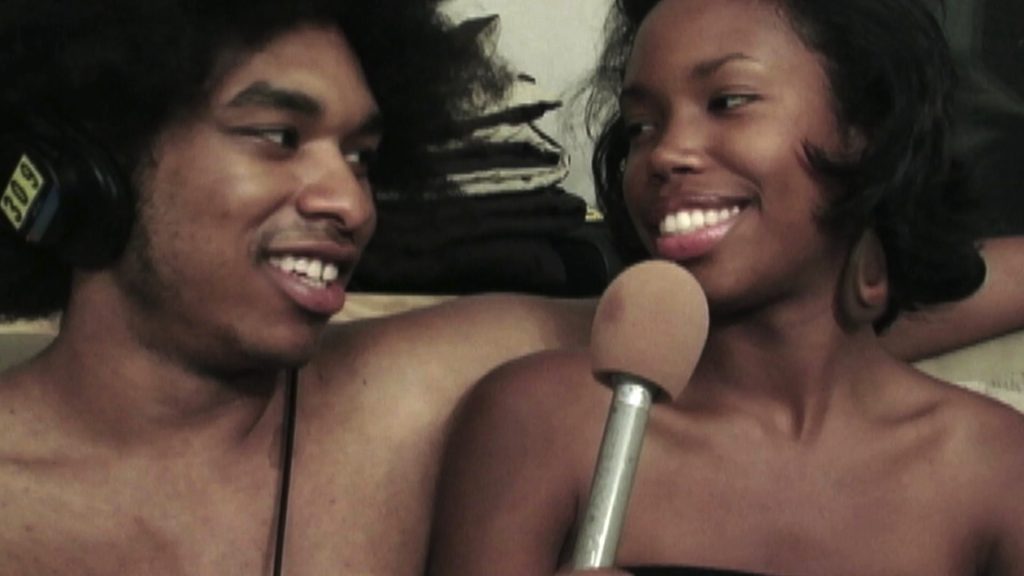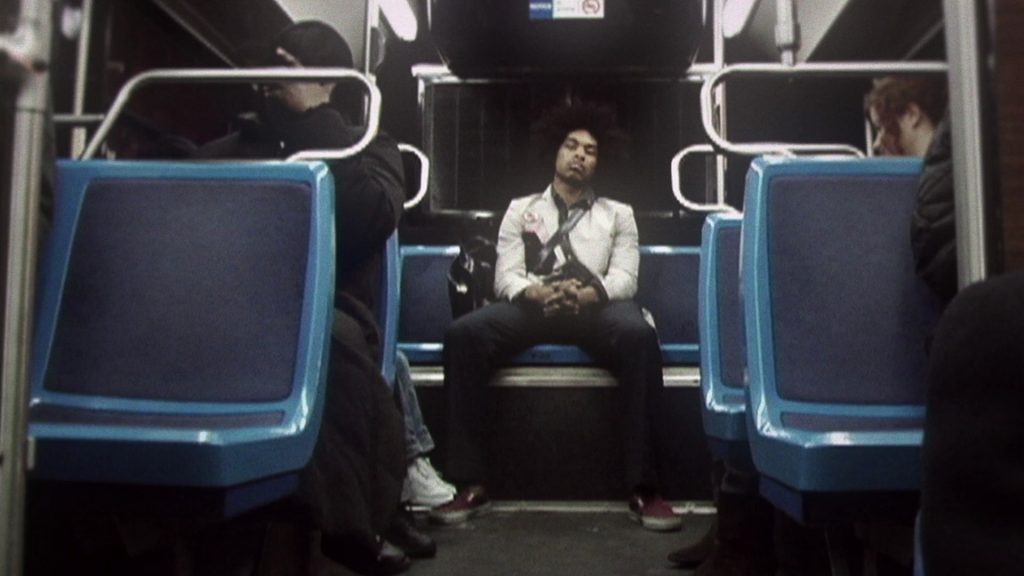Near the close of An Oversimplification of Her Beauty, director and lead actor, Terence Nance expresses his consternation with the standard love salutation, ‘Love,” a formality used at the end of a love letter. Instead, Nance proposes to replace the sterile utterance with his own “well-thought-out definition of love.” Nance’s pledge to replace the customary gesture offers a window into his innovative film as he does indeed introduce the audience to a new kind of love, a love for raw, unadulterated romance.
Nance’s film is overwhelmingly ambitious for a debut feature. An IFP Narrative lab graduate and an official selection of 2012 Sundance Film Festival, the film has garnered a wealth of recognition. It won the 2012 Gotham Award for “Best Film Not Playing at a Theater Near You.” In the same year, Filmmaker Magazine selected Nance as one of the 25 new faces of independent film. After viewing the film, it is easy to understand the widespread praise for Nance’s ebullience, meticulousness and passion for filmmaking.
As with David Lynch’s Inland Empire, Jean-Luc Godard’s Contempt, and Jonathan Caouette’s inventive documentary Tarnation, An Oversimplification of Her Beauty is about memory and the creative process.
At once, Nance thrusts the audience into a perplexing multilevel narrative world that blurs (or confuses) the line between fiction and reality with the sudden intrusion of documentary footage, colorful animation and claymation. The screen is immediately inundated with a fragmented collage. Set in New York City, the central narrative focuses on the evolution and deconstruction of a friendship/relationship between Nance and his archetypal desired woman (Namik Minter). Throughout the course of the film their relationship oscillates between a platonic friendship and an unfulfilled romantic one, shifting the bearer of unrequited love between Nance and Namik at different times in the story.
The film presents itself (like John Cassavetes’ and Woody Allen’s films have before) as a meditative ode to capricious love in New York City bohemia, and the often disjointed form it can take.
We are brought back on track from a sometimes difficult-to-follow narrative by the persistence of a prominent male voice detailing the stages of a relationship by giving it subtitles and subtext, also in the form of intertitles. The voice-of-God narrator assumes the role of a ubiquitous philosopher who articulates Nance’s behavior and offers advice. Essentially, what begins as a storybook narration becomes a full-fledged, highbrow therapy session with a prodigiously erudite and omniscient voice-of-Vincent Price analyst who employs direct-address. But Nance isn’t the only one listening to the speaker: the audience is implicated in this quarrelsome love story, too, and constantly confronted with the question, “How would you feel?
As the film also plays with the concept of a heteroglossia/conflicting speakers as the voice-over shifts between characters and exterior/interior monologues, the film unifies itself into a catharsis. It’s a requiem for young and complicated love. It is a cinematic sketchbook of Nance’s relationship with New York, film school and his leading actress. Nance’s complex diegetic recollection of love presents a clear and resounding message: we cannot oversimplify love—as many attempt to do—love is complicated, illusory, and impossible to understand.







